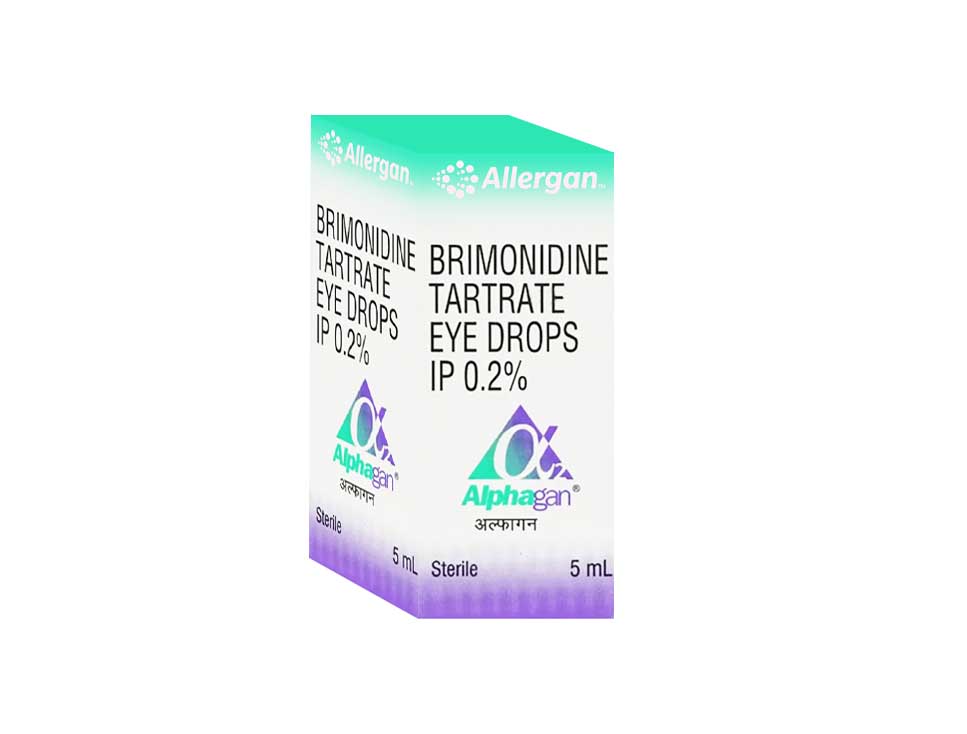Information about ALPHAGAN Eye Drops
ALPHAGAN Eye Drops, containing brimonidine tartrate, are primarily used to lower intraocular pressure (IOP) in patients with open-angle glaucoma or ocular hypertension.
ALPHAGAN is contraindicated in patients who have exhibited a hypersensitivity reaction to any component of this medication in the past.
Product Highlights
- Effective in reducing elevated intraocular pressure, which helps prevent optic nerve damage and vision loss associated with glaucoma.
- Available in various formulations, including 0.1% and 0.15% concentrations, catering to different patient needs.
Key Ingredients
- Brimonidine tartrate
- Benzalkonium chloride
- Citric acid
- Polyvinyl alcohol
- Sodium chloride
- Sodium citrate and Purified Water
Key Benefits
- Reduces intraocular pressure by decreasing aqueous humor production and increasing uveoscleral outflow.
- Helps preserve vision by preventing damage to the optic nerve caused by elevated IOP.
- May also be used to treat ocular hypertension in individuals at risk of developing glaucoma.
Direction For Use
- ALPHAGAN Eye Drops are typically applied directly into the affected eye(s) as directed by a healthcare provider.
- The usual dosage is one drop in the affected eye(s) 2 times daily. Patients should avoid touching the dropper tip to prevent contamination.
Safety Concern
- Discontinue use and seek medical attention if signs of an allergic reaction (e.g., rash, itching, and swelling) occur.
- Common side effects may include ocular hyperemia (red eyes), blurred vision, dry mouth, and ocular itching.
- Brimonidine can cause systemic effects such as hypotension and bradycardia; caution is advised in patients with cardiovascular disease or taking medications affecting heart rate.
Avoid using ALPHAGAN Eye Drops if you:
- Are allergic to brimonidine or any components of the formulation.
- Have severe cardiovascular disease, including severe coronary insufficiency, heart failure, or orthostatic hypotension.
- Are using monoamine oxidase inhibitors (MAOIs) or tricyclic antidepressants, as interactions may occur.






